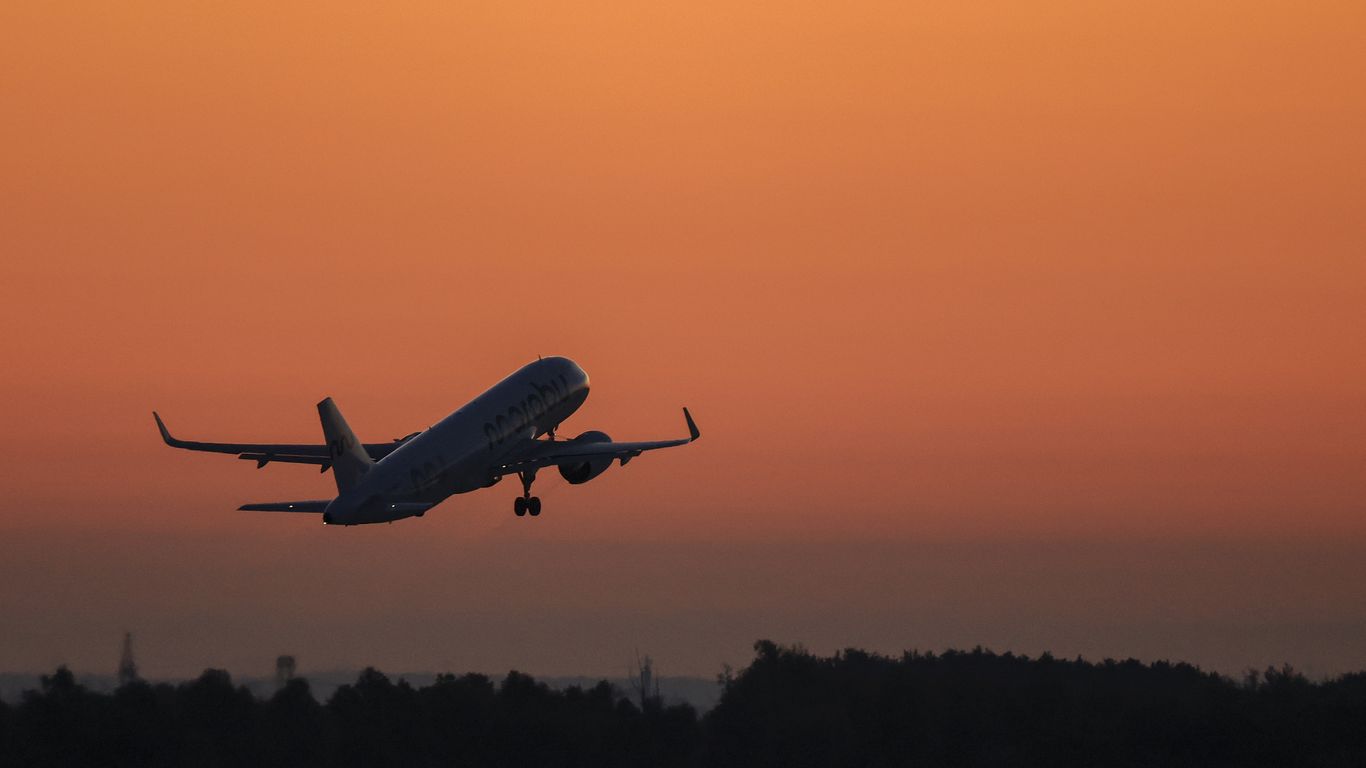FAA Slashes Flights Amid Government Shutdown: Airlines Offer Flexibility
#faa #airlines #travel #government_shutdown #flight_reduction
FAA Announces Flight Reductions Amid Government Shutdown
The Federal Aviation Administration (FAA) has announced a 10% reduction in air traffic across 40 high-volume U.S. markets starting Friday morning. This measure aims to preserve safety during the ongoing government shutdown, which has led to staffing shortages among air traffic controllers. The reduction will affect thousands of domestic flights, particularly at major airports with heavy traffic.
Airlines Respond to FAA Directive
Major carriers, including Delta Air Lines, are complying with the FAA's directive by adjusting flight schedules. While most flights, including long-haul international services, will continue as planned, airlines are offering customers increased flexibility. Passengers can change, cancel, or refund tickets without penalties to accommodate potential disruptions during this period.
Safety and Customer Impact
The FAA emphasizes that reducing flights is essential to maintain airspace safety amid reduced air traffic control staffing. Though inconvenient, these precautions help minimize risks. Airlines are actively communicating updates to travelers and encouraging monitoring of flight status through official channels to mitigate the impact during the shutdown.
About the Organizations Mentioned
Federal Aviation Administration
The **Federal Aviation Administration (FAA)** is a U.S. government agency responsible for ensuring the safety, efficiency, and regulation of civil aviation and commercial space transportation within the United States and its surrounding international waters. Established originally as the Federal Aviation Agency in 1958, it became part of the Department of Transportation in 1967, adopting its current name[1][3]. The FAA’s core functions include regulating and overseeing air traffic control, pilot and technician certification, airport safety standards, and aircraft manufacturing and maintenance regulations. The agency manages air traffic for over 50,000 daily commercial and general aviation flights, ensuring safe and efficient navigation through the National Airspace System (NAS)[2][4]. It also develops and operates air traffic control and navigation systems used by both civil and military aircraft, showcasing its broad operational scope[1][3]. The FAA operates through five main lines of business: - Air Traffic Organization (ATO), managing air navigation services and control facilities such as towers and radar centers - Aviation Safety (AVS), responsible for certification of personnel and aircraft - Airports (ARP), overseeing national airport system planning and grants - Office of Commercial Space Transportation (AST), regulating commercial space launches and reentries - Security and Hazardous Materials Safety (ASH), focusing on risk reduction and infrastructure protection[4]. In addition to regulation, the FAA invests heavily in research and development, advancing aviation technology and safety systems, including aeromedical research and environmental programs addressing noise and pollution from aircraft[2][3]. Its mission emphasizes providing the safest, most efficient aerospace system globally, with a vision of integrating new technologies and users into aviation safely and innovatively[6]. Notable achievements include establishing stringent safety standards that have made U.S. airspace one of the safest worldwide and pioneering regulation of commercial space transportation, an emerging sector. The FAA’s commitment to innovation and safety continues to shape the future of aviation and aerospace, making it a central figure in both business and technolog
Delta Air Lines
Delta Air Lines, Inc., headquartered in Atlanta, Georgia, is a leading major U.S. airline operating nine hubs, with Hartsfield–Jackson Atlanta International Airport as its largest. It flies over 5,400 daily flights to 325 destinations across 52 countries on six continents, making it one of the world’s most extensive global networks. Delta is a founding member of the SkyTeam airline alliance, enhancing its international connectivity through partnerships with airlines such as Air France-KLM, Aeromexico, and Virgin Atlantic[1][2]. Founded in 1924, Delta is the second-oldest operating commercial airline in the U.S. and has continuously grown through strategic acquisitions, most notably the 2008 merger with Northwest Airlines, which expanded its domestic and international reach. This integration was completed in 2010, unifying operations and technology systems under the Delta brand[1]. Delta’s reputation is bolstered by its outstanding financial performance and brand value. In 2025, it reported record quarterly revenues exceeding $15 billion, demonstrating strong resilience and growth in a competitive industry. It consistently ranks highly on the Fortune 500 list (70th) and has received numerous accolades including top rankings by The Wall Street Journal, Condé Nast Traveler, and Forbes Travel Guide. Delta is also widely recognized for its innovation, leadership quality, and workplace culture, appearing on lists such as Fast Company’s Most Innovative Companies, Glassdoor’s Best Places to Work, and Forbes World’s Best Employers[1][2][3][7]. Delta emphasizes sustainability, aiming for net-zero carbon emissions by 2050, and actively pursues diversity, equity, and inclusion initiatives. Its community engagement focuses on environmental stewardship, education, and wellness. Delta’s leadership philosophy centers on purpose-driven, people-first management, contributing to its top positioning on leadership and corporate responsibility rankings[4][5][6]. With a customer base of over 180 million annually, Delta serves a demographi
















